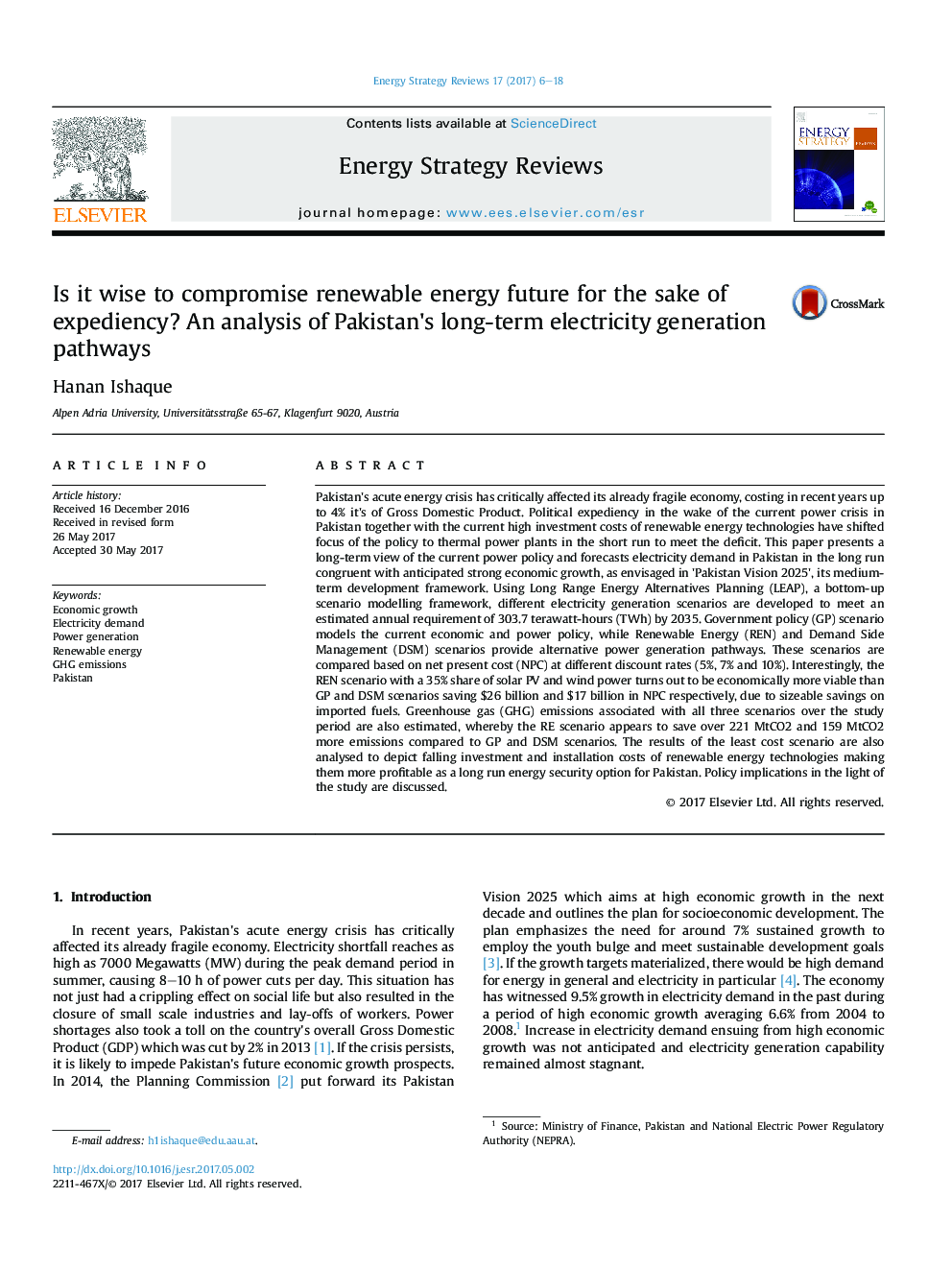| کد مقاله | کد نشریه | سال انتشار | مقاله انگلیسی | نسخه تمام متن |
|---|---|---|---|---|
| 5111430 | 1483523 | 2017 | 13 صفحه PDF | دانلود رایگان |
عنوان انگلیسی مقاله ISI
Is it wise to compromise renewable energy future for the sake of expediency? An analysis of Pakistan's long-term electricity generation pathways
ترجمه فارسی عنوان
آیا عاقلانه است که آینده انرژی تجدیدپذیر به خاطر مصلحت به خطر بیافتد؟ تجزیه و تحلیل مسیرهای تولید برق درازمدت پاکستان
دانلود مقاله + سفارش ترجمه
دانلود مقاله ISI انگلیسی
رایگان برای ایرانیان
کلمات کلیدی
رشد اقتصادی، تقاضای برق، تولید برق، انرژی تجدید پذیر، انتشار گازهای گلخانه ای، پاکستان،
موضوعات مرتبط
مهندسی و علوم پایه
مهندسی انرژی
انرژی (عمومی)
چکیده انگلیسی
Pakistan's acute energy crisis has critically affected its already fragile economy, costing in recent years up to 4% it's of Gross Domestic Product. Political expediency in the wake of the current power crisis in Pakistan together with the current high investment costs of renewable energy technologies have shifted focus of the policy to thermal power plants in the short run to meet the deficit. This paper presents a long-term view of the current power policy and forecasts electricity demand in Pakistan in the long run congruent with anticipated strong economic growth, as envisaged in 'Pakistan Vision 2025', its medium-term development framework. Using Long Range Energy Alternatives Planning (LEAP), a bottom-up scenario modelling framework, different electricity generation scenarios are developed to meet an estimated annual requirement of 303.7 terawatt-hours (TWh) by 2035. Government policy (GP) scenario models the current economic and power policy, while Renewable Energy (REN) and Demand Side Management (DSM) scenarios provide alternative power generation pathways. These scenarios are compared based on net present cost (NPC) at different discount rates (5%, 7% and 10%). Interestingly, the REN scenario with a 35% share of solar PV and wind power turns out to be economically more viable than GP and DSM scenarios saving $26 billion and $17 billion in NPC respectively, due to sizeable savings on imported fuels. Greenhouse gas (GHG) emissions associated with all three scenarios over the study period are also estimated, whereby the RE scenario appears to save over 221 MtCO2 and 159 MtCO2 more emissions compared to GP and DSM scenarios. The results of the least cost scenario are also analysed to depict falling investment and installation costs of renewable energy technologies making them more profitable as a long run energy security option for Pakistan. Policy implications in the light of the study are discussed.
ناشر
Database: Elsevier - ScienceDirect (ساینس دایرکت)
Journal: Energy Strategy Reviews - Volume 17, September 2017, Pages 6-18
Journal: Energy Strategy Reviews - Volume 17, September 2017, Pages 6-18
نویسندگان
Hanan Ishaque,
